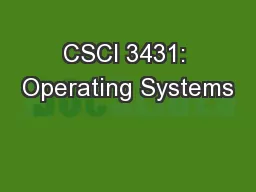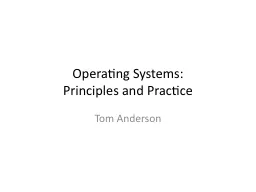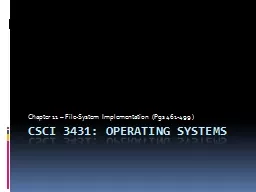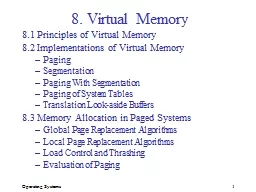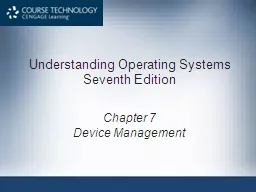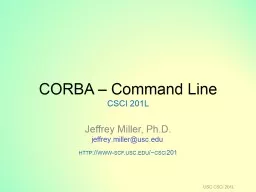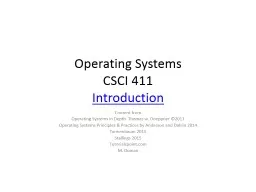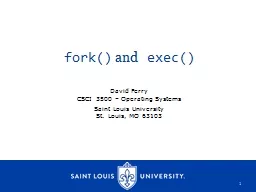PPT-CSCI 3431: Operating Systems
Author : briana-ranney | Published Date : 2015-10-30
Chapter 0 C Programming The C Language We are programming in C a subset of C C was originally compiled into C No classes templates namespaces userdefined overloading
Presentation Embed Code
Download Presentation
Download Presentation The PPT/PDF document "CSCI 3431: Operating Systems" is the property of its rightful owner. Permission is granted to download and print the materials on this website for personal, non-commercial use only, and to display it on your personal computer provided you do not modify the materials and that you retain all copyright notices contained in the materials. By downloading content from our website, you accept the terms of this agreement.
CSCI 3431: Operating Systems: Transcript
Download Rules Of Document
"CSCI 3431: Operating Systems"The content belongs to its owner. You may download and print it for personal use, without modification, and keep all copyright notices. By downloading, you agree to these terms.
Related Documents

